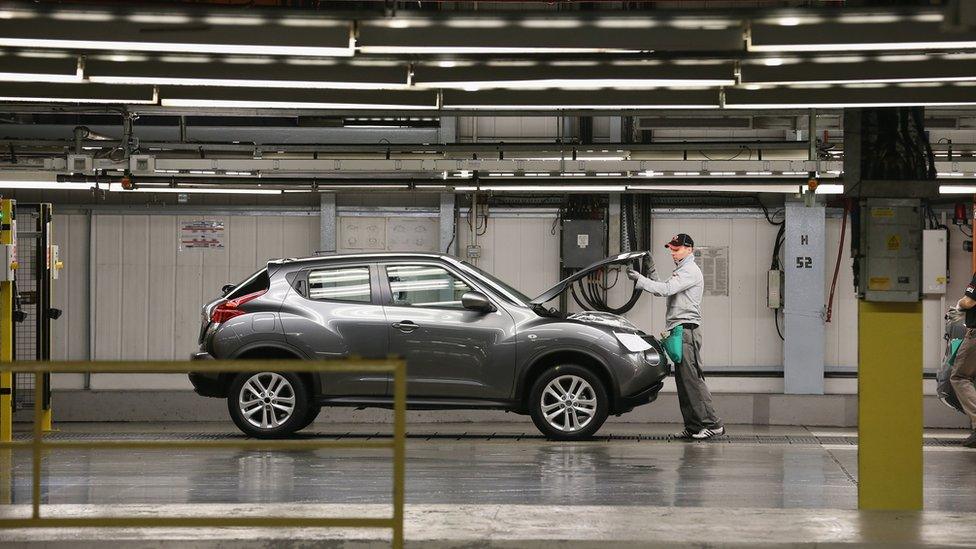Nissan to cut hundreds of UK jobs
- Published

The Juke is one of the models made at Nissan's Sunderland plant
Nissan is to cut hundreds of jobs at its Sunderland car plant, as diesel sales decline.
The carmaker builds its Qashqai and Juke models at the north-eastern England site, where it employs 7,000 people.
As well as a fall in the demand for its diesel cars, the job losses relate to a switch in production to newer models.
The job cuts follow those at Jaguar Land Rover, which last week said it would shed 1,000 contract staff.
A Nissan spokesman said: "As previously communicated, we are transitioning to a new range of powertrains over the next year.
"As we make the operational changes required to support this, we will be managing a planned short-term reduction in powertrain supply and plant volumes at NMUK in line with our 2018 Business Plan. We are now discussing these operational changes with our employees."
Employees will be offered a financial package and the chance to be retrained if they choose to leave.
Across the UK demand for diesel vehicles fell by a third in the first three months of this year.
Nissan said it expected production volumes to recover as it begins to make the new models.
Future investment
In 2016, following the vote to leave the European Union, Nissan confirmed it would build new models at its Sunderland plant, the largest vehicle production site in the UK.
A spokesperson for the Department for Business, Energy and Industrial Strategy said it was "working with the industry to ensure that the UK is at the forefront of new automotive technologies and remains the destination of choice for future investment".
Unite's acting national officer Steve Bush said the union was working with Nissan "to minimise job losses associated with a short-term reduction in volumes at the carmaker's Sunderland plant".
"Going forward we expect to see temporary workers at the plant move into permanent positions as volumes pick up again in future years," he said.
- Published13 April 2018
- Published8 June 2011